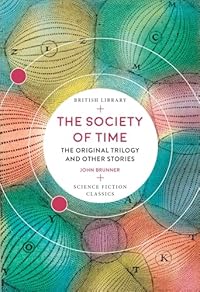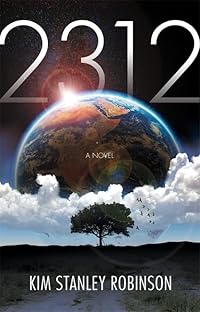Out of This World 5
Posted in Reading Reviewed, Science Fiction at 12:00 on 28 February 2022
First published in 1965, 182 p. In Out of This World Choice (Out of This World 2 & Out of This World 5) edited by Amabel Williams-Ellis and Mably Owen, Blackie, 1972, 369 p in total.
 Another set of exercises, as in Out of This World 2, in thoroughly old-fashioned Science Fiction. More problems to be solved or misunderstandings to be overcome. Entertaining enough just the same.
Another set of exercises, as in Out of This World 2, in thoroughly old-fashioned Science Fiction. More problems to be solved or misunderstandings to be overcome. Entertaining enough just the same.
Four in One by Damon Knight. Members of an exploratory expedition to another planet stumble into an alien life-form which absorbs them, leaving only their nervous systems intact. They can still communicate with each other and direct the organism though.
Bottomless Pit by Philip E High. The planet Shrule has been nicknamed the Bottomless Pit since no-one, of whatever species, returns from there. An expedition to exploit its resources finds out exactly why. This is one of the few old style SF stories where humans are bested by their antagonists.
The Hour of Letdown by E B White starts with a man walking into a bar. It’s not a joke though. The machine he carries is a multi-function computer of sorts, which can drink – and cheat at chess.
Colonial by John Christopher. The indigenous animals used to direct Venus’s arbitrary justice system have been replaced by the judgement of the leader of the human colonialists, Max Larkin. An exposé on Earth of the Venusians’ supposed exploitation leads to an investigation by reporters which could threaten the colonials’ extraction business. Larkin’s solution depends on his knowledge of the locals.
Badman by John Brunner. Today is the day that The Badman, upholder of law and order, punisher of all transgressors, and universal object of fear, is making one of his irregular visits to the town. In concert with his pals Niles Boden has concocted a plan to kill him. Niles is the one who draws the short straw and has to attempt the deed. What happens thereafter is different from what he expects.
Pushover Planet by Con Pedersen. A human expedition to another planet is befriended by one of its inhabitants. When they don environment suits it is another matter, though.
The Fiction Machines by Vadim Okhotnikov. A man who thinks his memoirs would make riveting reading finds it’s not so easy to write when you’re faced with a blank page. He invents ever bigger and more elaborate machines to help him with the task but the technology is too good at what it does.
Winthrop Was Stubborn by William Tenn. Four time-travellers to the twenty-fifth century are dismayed when the fifth – Winthrop – says he will not come back with them at the appointed time. Each is sent to the person in this future they could most likely persuade to help change Winthrop’s mind but the social set-up is such that none of them can do anything about it. The situation is resolved in a natural, organic, way.
Pedant’s corner:- In the preface; “Mr James Vance” (Jack Vance.) Otherwise; “his weight was only a little more than twenty kilograms on this planet” (strictly, weight is measured in Newtons, which, on Earth, equates directly to kilograms, the unit of mass. On another planet the relationship would not be so equivalent,) “axones and denerites” (axons and dendrites,) “old wives tales” (old wives’ tales?) “the penalties for indiscriminating killing” (indiscriminate,) “smiled faintly slightly” (either, faintly, or, slightly. Not both,) “oblivious of” (oblivious to.)






